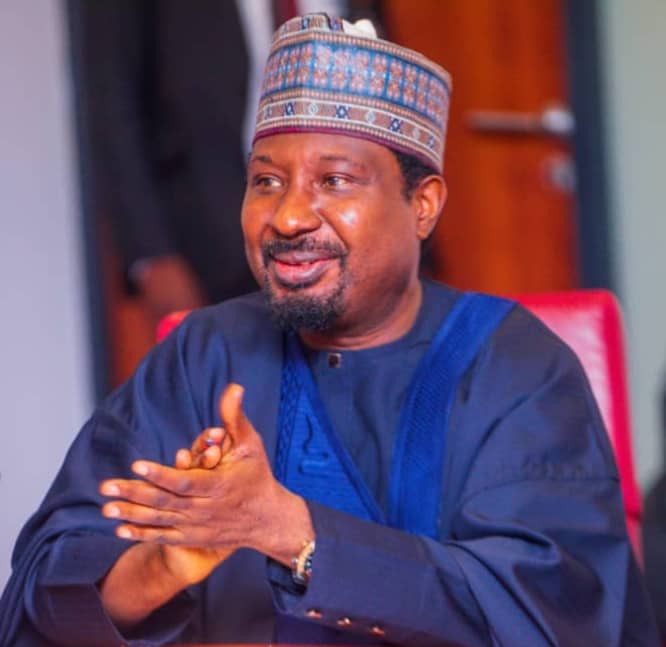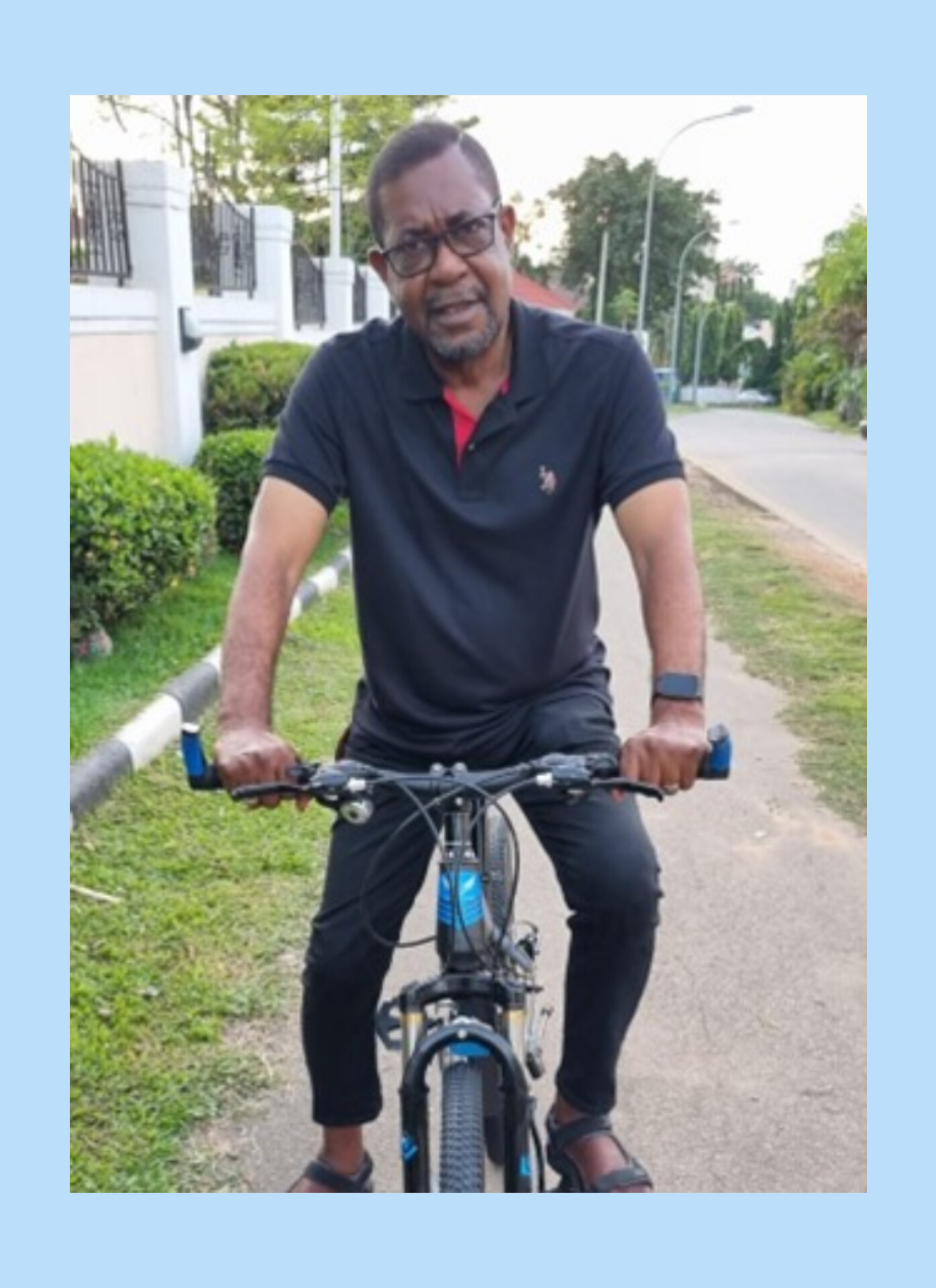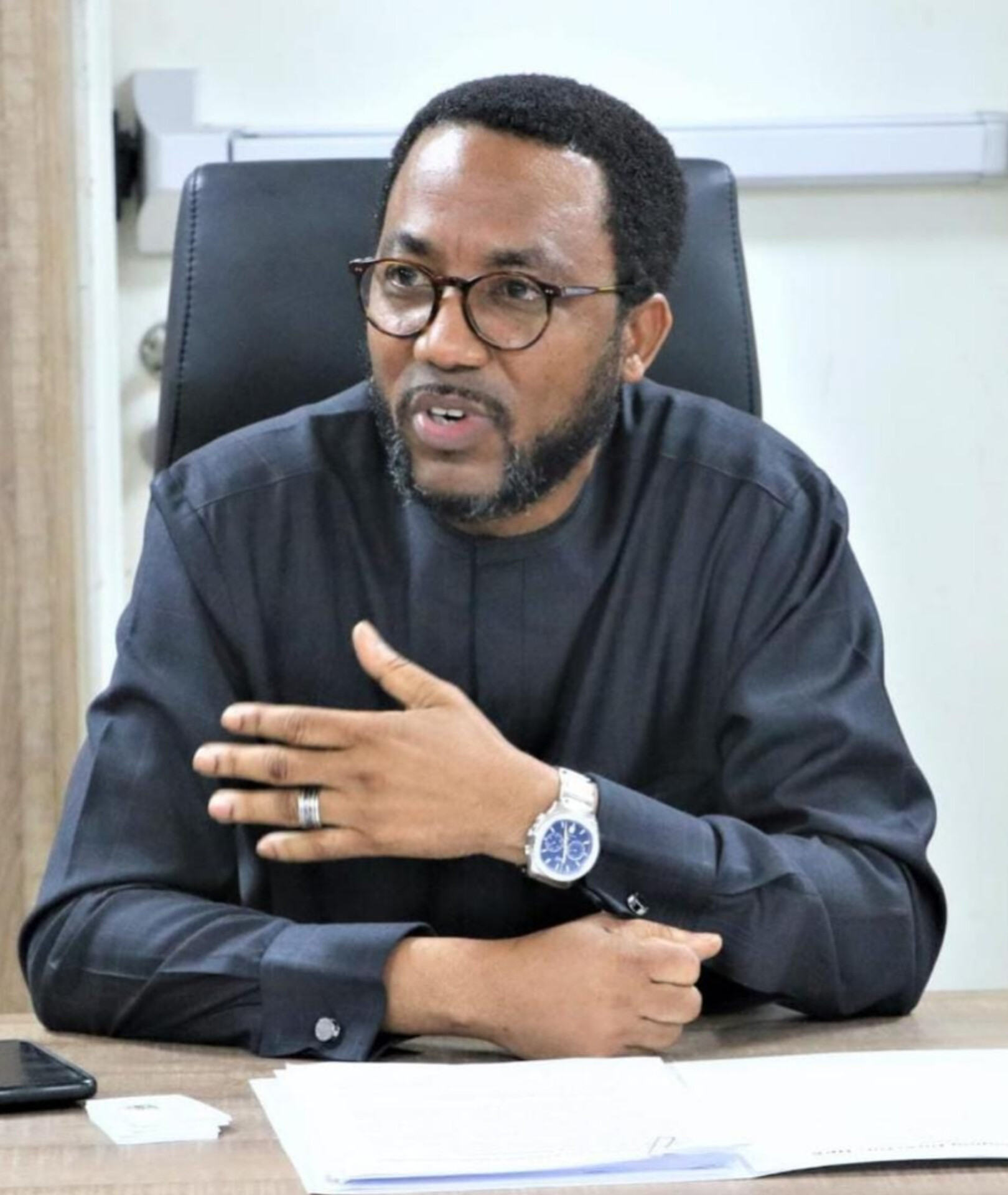By Tunde Olusunle
Seasons of politicking have always excited me through the ages. They come with multidimensional appeal and inspiration for both the creative writer and the recorder of history in motion, the journalist. They are characterised by sights and sounds, specific to the season. They throw up slogans and soundbites, rhymes and rhythms, frills and thrills, which ring and re-echo in our consciousness beyond the period. Can I for instance ever forget a 2011 incident during which my SUV, an Infinity QX 56 was transported by a wooden ferry across the River Niger from Lokoja the Kogi State capital to Gboloko in Bassa local government area in Kogi State? It was during the off-cycle election which produced the Emeritus aviator, Idris Wada, as governor of Kogi State. My heart was effectively in my mouth for the duration of that trip. I opted to return to the Kogi State capital through a longer land route, rather than repeat that experiment.
Campaigns could turn boisterous and carnivalesque, generating a tapestry of tongues, a cacophony of colours, in the frenzied ambience of festivity. Afrobeats which has hoisted Nigerian music unto the global spotlight, has become sine qua non on Nigeria’s political trail. This is the trend in the liberal north central and global south of Nigeria, typically enlivening open air campaigns and concurrent roadshows. Most unfortunately, the “do or die” desperation which has blighted contemporary electioneering in parts, has impacted the characteristic blitz and glitz of electioneering in instances. My involvement in quite a few such exercises over several decades, at various levels, has privileged me with “seven-figure gigabytes” of on-field experience such that one can speak about these issues from an informed perspective.

Nigeria’s political discourse was noticeably enriched with new rhetoric in the run-up to the 2023 presidential polls. Incumbent President Bola Tinubu, Nigeria’s former Vice President, Atiku Abubakar and a former governor of Anambra State, Peter Obi, were the flagbearers of the three foremost political parties. These were the All Progressives Congress, (APC); the Peoples Democratic Party, ( PDP) and the Labour Party, (LP). Tinubu encountered storms and tempests, en route securing the prized ticket. There was obvious conspiracy to deny him the ticket with over a dozen aspirants contesting against him for the flag, many candidate riding on the phantom endorsement of former President Muhammadu Buhari.
In obvious allusion to the overt plots against him at the time, an exasperated Tinubu told a crowd of supporters in Ogun State, that it was his turn to be President. He captured this in Yoruba as emi lokan. Tinubu has been largely credited with the coronation of Buhari as President in 2015. The “gentlemanly” agreement between both parties was that Buhari will reciprocate the good turn, come 2023. The expression emi lokan spontaneously became an Afrobeat song. The National Association of Seadogs, (NAS), better known as the Pyrates Confraternity, made the expression into a song which was further discofied by the Afrobeat artist, Dede Mabiaku. Trust Nigerians to make capital of almost anything and everything. Before that, there was Tinubu’s slip when he advocated the recruitment of “50 million youths” to fight ravaging insurgency and banditry across the land. They would be fed with garri, ewa, agbado, (cassava grains, beans and maize), was his prescription at the time.
Not too long after the “Abeokuta Declaration,” Tinubu at an event in Owerri in the South East as part of his campaigns, trailed off his script. He spoke about a townhall different from balablu blublu bulaba, which was not captured in his prepared text. The expression caught like wildfire and assumed a life of its own. Skit makers spontaneously feasted on it and came up with ingenious, hilarious copies of versions, calculated to throw barbs in the direction of APC presidential frontman. The phrase was adopted in Nigeria’s ever evolving specie of the English language to describe anything bewildering, confusing, fuzzy, perplexing.
The frontline media aides to President Tinubu are very well established professionals. Bayo Onanuga, (Special Adviser, Information and Strategy); Tunde Rahman, (Senior Special Assistant to the President, Media), and more recently Sunday Dare, (Special Adviser, Public Communication and Orientation), come to their schedules with lorry loads of cognate newsroom experience at the highest levels. Onanuga and friends founded the irrepressible TheNews magazine and PM News, which gave the administration of General Sani Abacha a good run in the mid-1990s by the way. He went all the way to serve as Managing Director of the News Agency of Nigeria, (NAN), under the Buhari government.
Rahman worked at different times in the Daily Times, The Punch and Thisday. He indeed floated a private enterprise, Western Post, which he conceived to fill the lacuna created by the liquidation of Daily Sketch, a quasi-rival to the Nigerian Tribune, in the once-upon-a-time Ibadan media space. I was a gratis contributing editor to the venture. Dare, who is multilingual having been raised in the north of Nigeria, once headed the Hausa service of the Voice of America, (VOA). He cut his professional teeth under Onanuga and the co-founders of TheNews magazine. Such is the quality of media specialists in this tripod, available to support President Tinubu.
In the aftermath of the appointment of Daniel Bwala as Special Adviser to the President on Public Communications and Media, a list of over one dozen appointees has been making the rounds. It features the names and designations of these many aides whose functions devolve around communicating the President and boosting his corporate profile. For the avoidance of doubt, with the exclusion of Onanuga, Rahman, Dare and Bwala,
the list reads thus: Abdulaziz Abdulaziz (Senior Special Assistant to the President, Print Media); O’tega Ogra (Senior Special Assistant (Digital/New Media) and Tope Ajayi, Senior Special Assistant (Media and Public Affairs).
There are also Segun Dada (Special Assistant, Social Media); Nosa Asemota (Special Assistant, Visual Communication); Fela Durotoye (Senior Special Assistant to the President, National Values and Social Justice) and Fredrick Nwabufo (Senior Special Assistant to the President, Public Engagement). Also on the list are Linda Nwabuwa Akhigbe (Senior Special Assistant to the President, Strategic Communications) and Aliyu Audu (Special Assistant to the President, Public Affairs). The last time I checked, there still is a civil service component to the media office in the State House, who are restricted to drafting press releases to be signed by the bigger bosses, eternally relegating them to anonymity. The list above does not include the nation’s Number One “salesman,” the Minister for Information and National Orientation, Mohammed Idris Malagi. It also does not feature the media operatives in the wing of the Vice President, Kashim Shettima.
You go through this list and your mind exhumes scenes from the very engaging sitcom, Fuji House of Commotion, hitherto aired regularly on national television. At its very centre was Chief Fuji, very ably acted by the renowned thespian, Kunle Bamtefa. Chief Fuji was married to four wives, some from sociocultural backgrounds different from his. Children filled the home, generating sustained intra-family bedlam. Not forgetting members of the extended family as well as family friends who stopped by on visits, contributing to the subsisting confusion. It was sure to be inevitable cacophony every single day with such a family configuration.
This subsisting presidential apparachik for public communication is a potential babel, the way it is. It is indeed a subtle prescription for possible dysfunction especially if the appointees work at cross purposes. True, there is an attempt at streamlining specialties in the present order, with novel creations like “visual communication,” “digital/new media,” “strategic communication,” “national values and social justice,” among others. Truth, however, is that this skinning and shredding of the flesh of the overarching schedule of presidential communication is susceptible to being counter-productive. There are glaring titular duplications and inevitable overlaps which could be latently combustible. Have we forgotten the proverb about “too many cooks spoiling the broth?”
Back in May, I wrote an essay titled: Wanted: A State of Emergency on the Cost of Governance. Therein, I canvassed moderation in the open-ended spree of political appointments, and the freestyle expansion of ministries, departments and agencies, (MDAs). All of these overburden the aggregate cost of governance, with specific regards to emoluments and overheads, to the detriment of tangible investment in infrastructures and services to drive socio-economic development. This is even as the federal government once committed to the implementation of the decade old “Stephen Oronsaye Report on the Reorganisation of Agencies and Parastatals,” which is yet to be implemented. We cannot continue to canvas foreign aid and loans, while mortgaging the futures of our children, without rethinking our penchant for rabid, voluptuous consumptiveness. Not forgetting our penchant for living large, living grand, as we would have seen in one video post which trended weeks ago, highlighting the bourgeois arrival of Senate President Godswill Akpabio to a routine session of the national assembly.
And why wouldn’t the President trust the tested Onanuga – Rahman – Dare triumvirate to headline his media marketing? True, Onanuga can contribute equally meaningfully to Tinubu’s government elsewhere having been on the media beat for over four decades now. He could as well be cooling off in the padded ambience of an ambassadorial role. This, however, does not detract from his proven capacities and qualities. About time for the President to rethink and reconfigure his media and communications ecosystem, en route to repositioning his administration for less wastage, and more impactful service delivery to his primary constituents. Every new appointment exacerbates our subsisting nightmarish indebtedness to shylocks across the world, and further pauperises our people.
Tunde Olusunle, PhD, a Fellow of the Association of Nigerian Authors, (FANA), teaches Creative Writing at the University of Abuja.




